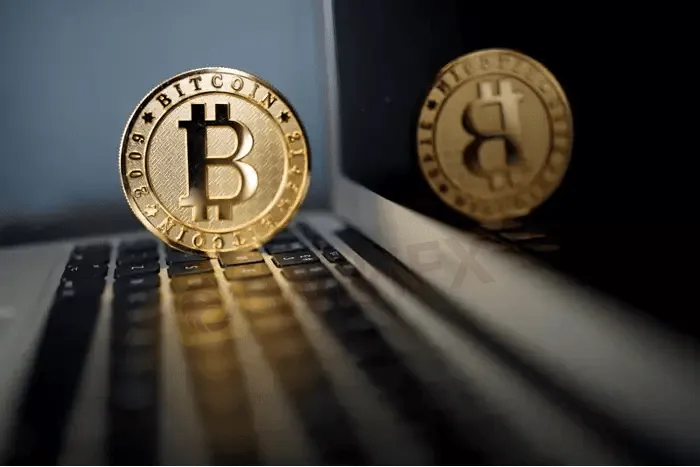简体中文
繁體中文
English
Pусский
日本語
ภาษาไทย
Tiếng Việt
Bahasa Indonesia
Español
हिन्दी
Filippiiniläinen
Français
Deutsch
Português
Türkçe
한국어
العربية
Cryptoverse: Crypto lenders face a DeFi drubbing
Abstract:Crypto lenders have boomed over the past two years, attracting tens of billions of dollars in bitcoin, ether and other coins which they in turn lent out or invested, often in decentralized finance (DeFi) projects with sky-high returns.

But as crypto markets tumble, DeFi activity is being hit particularly hard, robbing lenders of their most lucrative returns and threatening to squeeze the whole sector – reaching far beyond Celsius Network, which grabbed the headlines last week when it froze withdrawals and transfers.
The total value locked (TVL) on ethereum, a metric that attempts to track the value of tokens deposited in a variety of DeFi protocols, has declined by $124 billion or 60% over the last six weeks, according to data provider Glassnode.
The crash has occurred in two large crypto slices, $94 billion lost during the collapse of the LUNA project – involving failed stablecoin TerraUSD – and another $30 billion in mid-June, said Glassnode, which attributed the falls to diminishing risk appetite.
“The current market conditions have put an enormous amount of pressure on operators that interact with decentralized finance protocols to generate their yield,” said Mauricio Di Bartolomeo, co-founder and chief strategy officer of crypto lender Ledn.
Bitcoin vs ether vs dollar
Similarly, an index tracking crypto tokens linked to DeFi lending/borrowing protocols and exchanges, from research firm Macrohive, plunged 35% last week as investors pulled money from the formerly high-flying sector.
Some DeFi protocols, or projects, are starting to offer lower returns, with average lending and borrowing rates at one platform, Compound, down on the week across all but one cryptocurrency, the stablecoin Pax Dollar, Macrohive found.
In a further sign of the slowdown, ether – the token that underpins the ethereum network on which many DeFi protocols operate – last week dropped to its lowest level against larger peer bitcoin in 14 months
Versus the dollar, bitcoin has fallen 34% so far in June, while ether has lost over 40%.
The turmoil in this higher yielding part of the crypto market raises questions about the sustainability of the high interest rates crypto lenders offer to their customers, often in double digits.
TOO GOOD TO BE TRUE?
Some market players say crypto lenders should make clients aware of the risks of projects their money is pumped into.
“I expect users to demand more transparency if their assets are managed in DeFi space,” said Iakov Levin, CEO of crypto investment platform Midas Investments. “Crypto needs to find a more transparent model of retail yields.”
New Jersey-based Celsius, with over $11 billion of assets on its platform, cited market volatility when it suspended redemptions last week. A data trawl shows that it was invested in several DeFi projects that ran into difficulties.
“The DeFi market will no doubt suffer from this development because it also deals with cryptocurrencies and people will be more wary than ever about investing their assets in what they perceive as similar ecosystems,” said Yubo Ruan, founder and CEO of Parallel Finance, a decentralized lending protocol.
Ruan said if projects “promise rewards that sound too good to be true – theres always a chance that they are”.


Disclaimer:
The views in this article only represent the author's personal views, and do not constitute investment advice on this platform. This platform does not guarantee the accuracy, completeness and timeliness of the information in the article, and will not be liable for any loss caused by the use of or reliance on the information in the article.
Read more

Top 10 Trading Indicators Every Forex Trader Should Know
Master the top 10 Forex trading indicators to analyze real-time Forex quotes, trends, and market signals. Learn strategies to boost accuracy and avoid mistakes.

Geopolitical Events: What They Are & Their Impact?
You've heard many times that geopolitical events have a significant impact on the Forex market. But do you know what geopolitical events are and how they affect the FX market? Let us learn about it today.

Why Do You Feel Scared During Trade Execution?
Trade execution is a pivotal moment for traders. It is when analysis turns into action, and potential profits or losses become reality. However, for many traders, this moment is accompanied by fear. Why does this happen, and how can you address it?

WikiEXPO Global Expert Interview: Simone Martin—— Exploring Financial Regulation Change
In the midst of financial innovation and regulation, WikiGlobal, the organizer of WikiEXPO, stays abreast of industry trends and conducts a series of insightful and distinctive interviews on pivotal topics. We are delighted to have the privilege of inviting Simone Martin for an in-depth conversation this time.
WikiFX Broker
Latest News
Volkswagen agrees deal to avoid Germany plant closures
Geopolitical Events: What They Are & Their Impact?
Top 10 Trading Indicators Every Forex Trader Should Know
TradingView Launches Liquidity Analysis Tool DEX Screener
MultiBank Group Wins Big at Traders Fair Hong Kong 2024
WikiEXPO Global Expert Interview: Simone Martin—— Exploring Financial Regulation Change
'Young investors make investment decisions impulsively to keep up with current trends' FCA Reveals
Why Do You Feel Scared During Trade Execution?
CySEC Settles Compliance Case with Fxview Operator Charlgate Ltd
Malaysian Influencer Detained in Taiwan Over Alleged Role in Fraud Scheme
Currency Calculator


